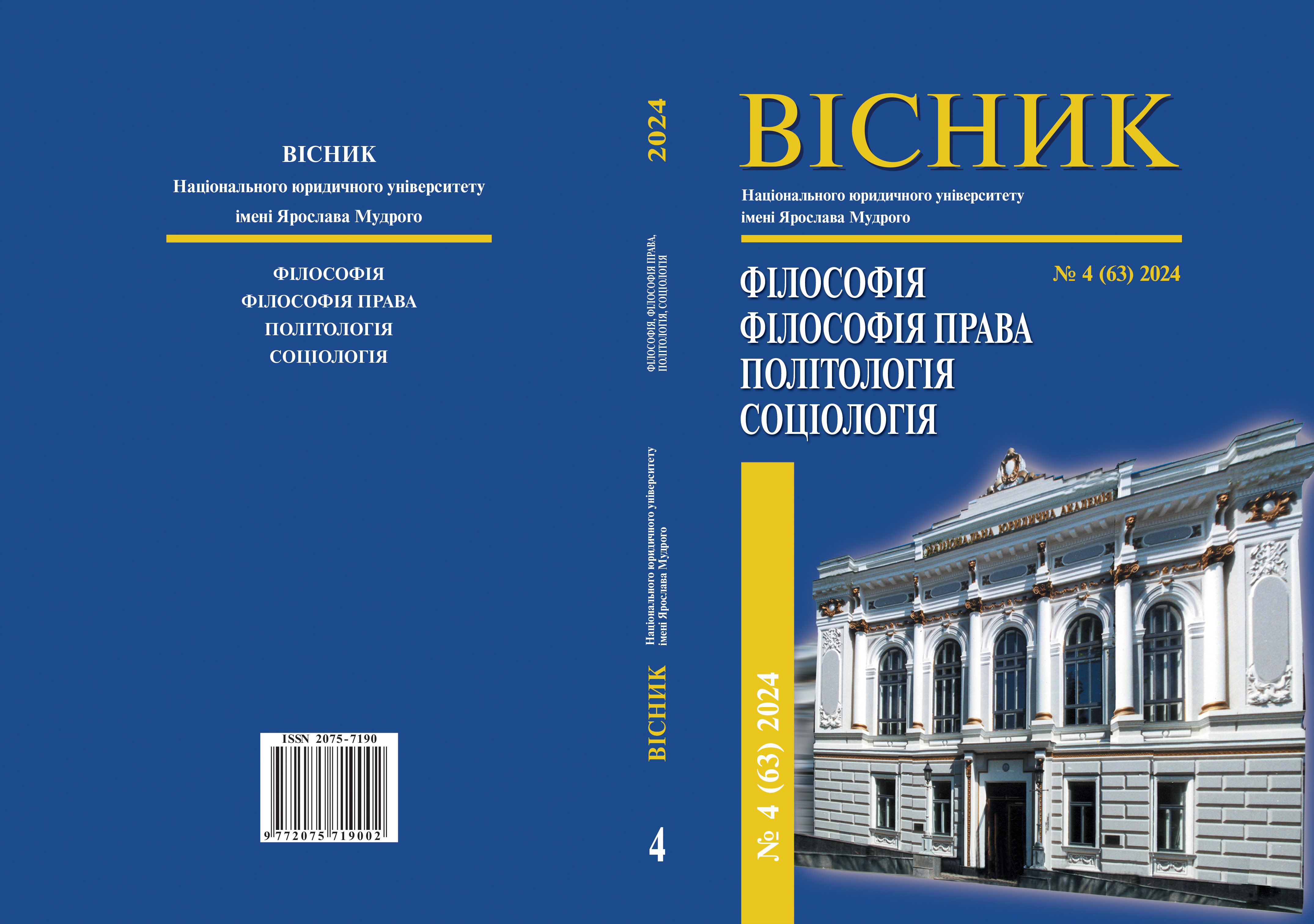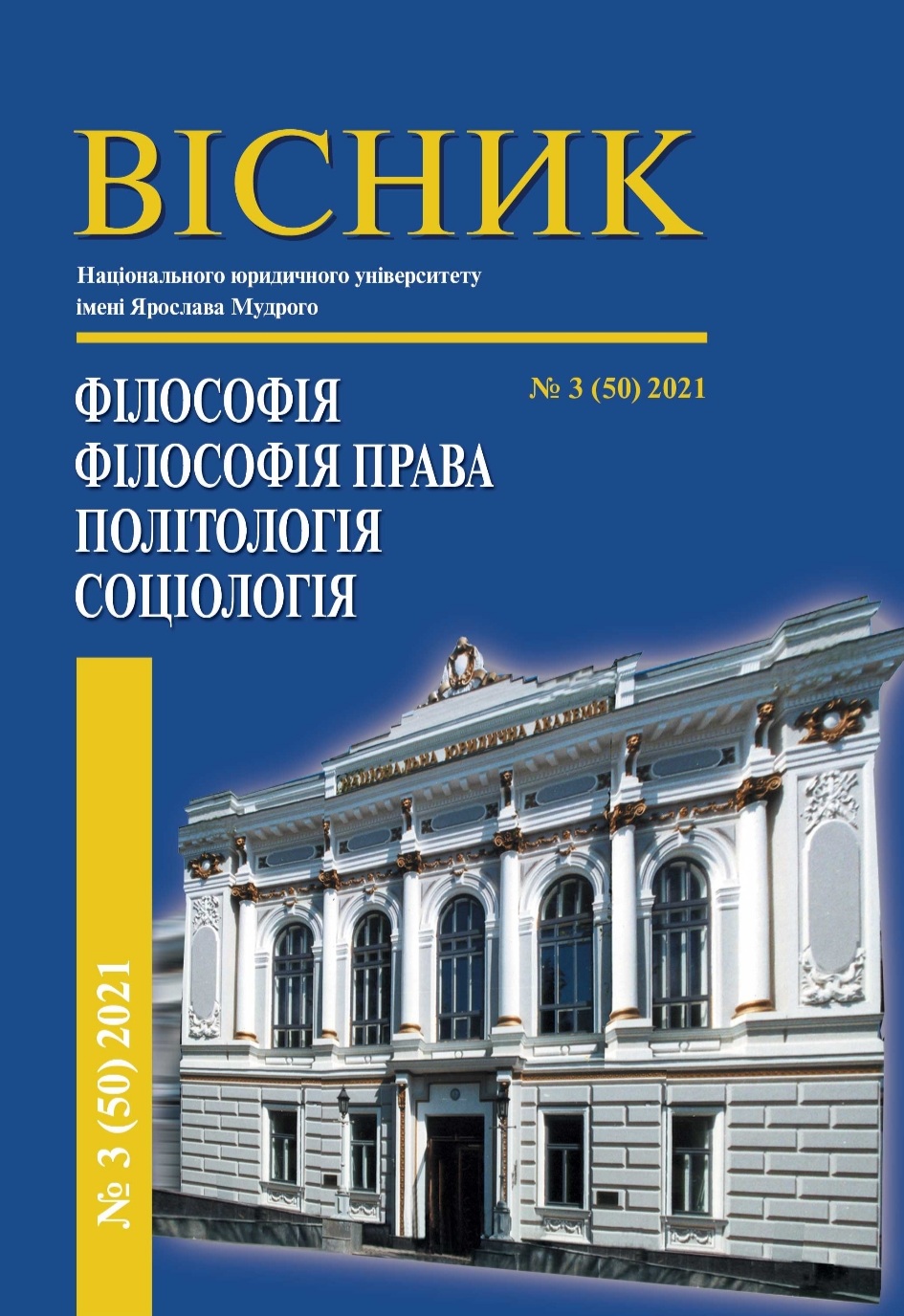КІБЕРПРОСТІР І ДЕРЖАВА: ТОЧКИ ПЕРЕТИНАННЯ
DOI:
https://doi.org/10.21564/2663-5704.63.315212Ключові слова:
держава, кіберпростір, Інтернет, кіберсуверенітет, цифровий суверенітет, свобода слова, Інтернет речей, правове регулюванняАнотація
Публікація присвячена державі у кіберпросторі. Робиться аналіз основних підходів держави до кіберпростору: класичного – з позицій традиційної науки та нового – з позицій тлумачення кіберпростору як особливої сфери регулювання. Виділяються три основних перспективних напрямки взаємодії держави та кіберпростору: технічний, політичний та економічний. При цьому акцентується увага на тому, що незважаючи на існуючі нормативні прогалини, лише держава здатна провести певне регулювання існуючих відносин не тільки за наведеними, а і в інших сферах кіберпростору.
Посилання
«Nemaye choho prykhovuvatyˮ. Shcho vidomo pro aresht Durova i yak na nʹoho reahuye svit. (2024). URL: https://www.bbc.com/ukrainian/articles/c4gqe2qwe82o [in Ukrainian].
Order na aresht Durova ta yoho brata buv vydanyy shche u berezni. Politico (2024). URL: https://www.radiosvoboda.org/a/news-durnyy-brat-telehram/33096977.html [in Ukrainian].
Aresht Durova yak nahaduvannya pro nebezpeky, shcho kryyutʹsya v Telegram. (2024). https://www.ukrinform.ua/rubric-world/3899351-arest-durova-ak-nagaduvanna-pro- nebezpeki-so-kriutsa-v-telegram.html [in Ukrainian].
Nieto, G. (2023). The Nature and Development of The Internet: A Crisis for Law. Ciencia juridica, 12(24), 143–164.
Jiménez, W., Quintana, O. (2017). Law and internet: introduction to an emergent field for both legal research and practice. Prolegomenos-derechos y valores, 20(40), 43–61.
Polanski, P. (2017). Cyberspace: A new branch of international customary law? Computer law & security review, 33(3), 371–381.
Xu, H., Zhang, X. (2019). The Rule of Law Model of Internet Governance. Social sciences in china, 40(3), 135–151.
Johnson, D., Post, D. (1996)). Law and borders – The rise of law in Cyberspace. Stanford law review, 48(5), 1367–1402.
Tzafestas, S. (2018). Ethics and Law in the Internet of Things World. Smart cities, 1(1), 98–120.
Kelton, M., Sullivan, M., Rogers, Z., Bienvenue, E., Troath, S. (2022). Virtual sovereignty? Private internet capital, digital platforms and infrastructural power in the United States. International affairs, 98(6), 1977–1999.
URL: https://academic.oup.com/ia/article/98/6/1977/6783036?login=false
Braun, M., Hummel, P. (2024). Is digital sovereignty normatively desirable? Information, Communication & Society, 1–14.
URL: ttps://www.tandfonline.com/doi/epdf/10.1080/1369118X.2024.2332624?need Access=true
Falkner, G., Heidebrecht, S., Obendiek, A., Seidl, T. (2024). Digital sovereignty – Rhetoric and reality. Journal of european public policy, 31(8), 2099–2120.
Fries, I., Greiner, M., Hofmeier, M., Hrestic, R., Lechner, U., Wendeborn, T. (2022). Towards a Layer Model for Digital Sovereignty: A Holistic Approach. 17th International Conference on Critical Information Infrastructures Security (CRITIS): proceedings 17th International Conference on Critical Information Infrastructures Security (CRITIS). Munich, 119–139.
Magnus, R. (2020). Corporate personality rights on the internet and the applicable law. Rabels zeitschrift fur auslandisches und internationales privatrecht, 84(1), 1–23.
Cradduck, L. (2020). Legislating for Internet «Access» – ability. Second international handbook of internet research. New York, 647–668.
De Gregorio, G., Stremlau, N. (2020). Internet Shutdowns and the Limits of Law.
International journal of communication, 14, 4224–4243.
Thumfart, J. (2024). Digital Rights and the State of Exception. Internet Shutdowns from the Perspective of Just Securitization Theory. Journal of global security studies , 9 (1). URL : https://academic.oup.com/jogss/article/9/1/ogad024/7515068?login=false
Strauch, R. (2024). Public opinion effects of digital state repression: How internet outges shape government evaluation in Africa. Journal of information technology & politics, 21, 479–492.
Serna, F., Iniesta, J. (2018). The delimitation of freedom of speech on the Internet: the confrontation of rights and digital censorship. Adcaij-advances in distributed computing and artificial intelligence journal, 7(10), 5–12. URL: https://revistas.usal.es/cinco/ index.php/2255–2863/article/view/ADCAIJ201871512/19076
Pardo, F. (2022). Hate speech and freedom of expression in digital environments: social and legal implications. Soletras, 43, 178–196.
Porcelli, A. (2019). (Des)advantages of the first legislation on the internet of things.
En letra, 11–12, 139–164.
Tran, A. (2017). The Internet of Things and Potential Remedies in Privacy Tort Law.
Columbia journal of law and social problems, 50(2), 263–298.
Monsees, L., Lambach, D. (2022). Digital sovereignty, geopolitical imaginaries, and the reproduction of European identity. European security, 3, 377–394




